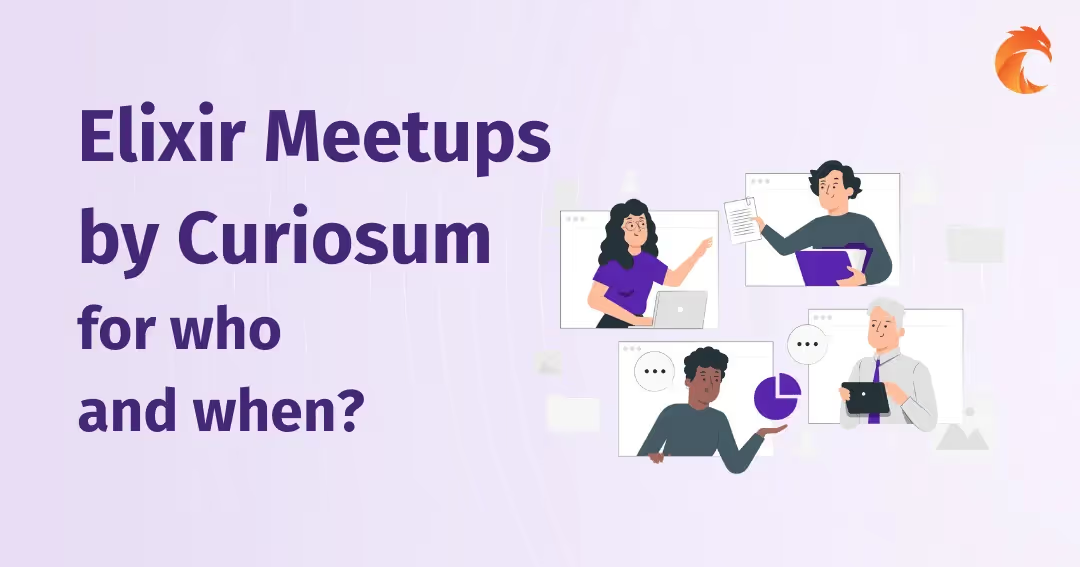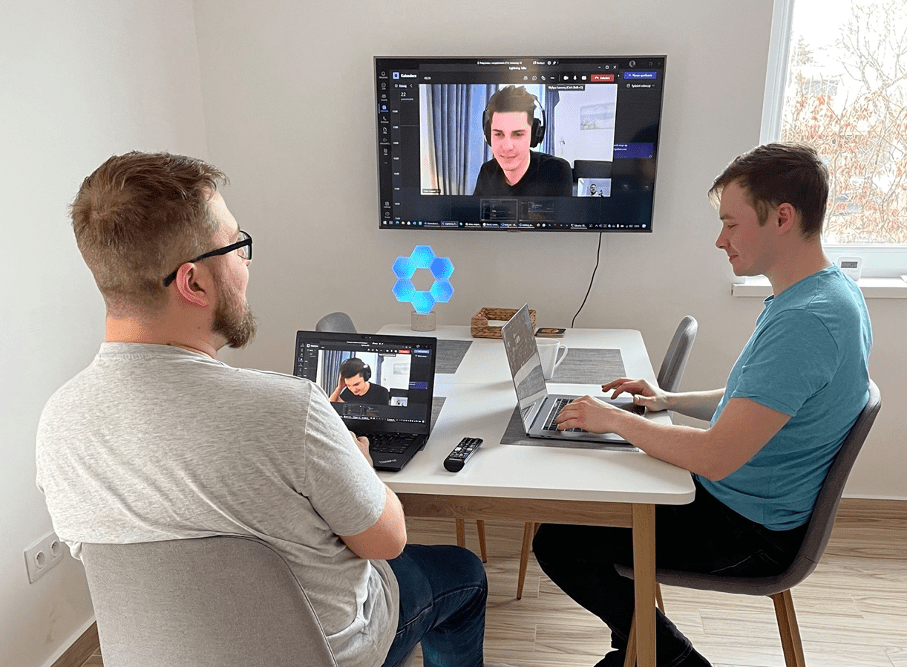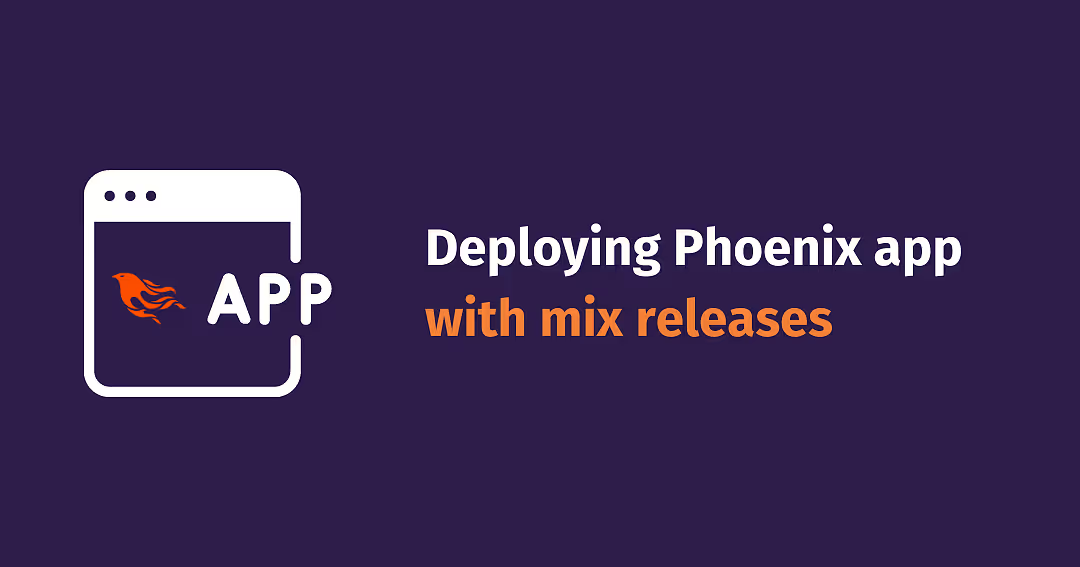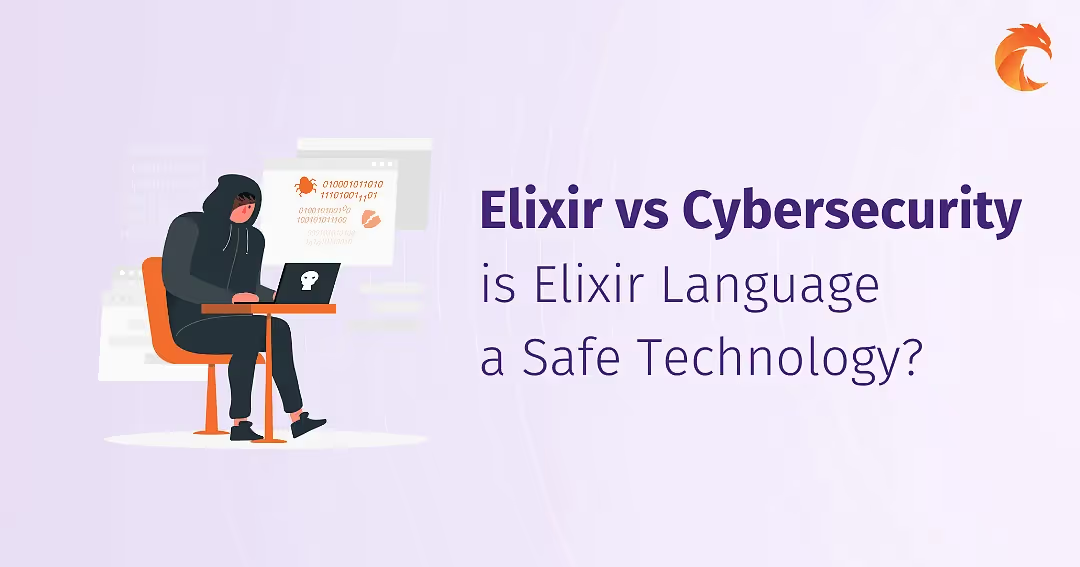Elixir Meetups by Curiosum - for Who and When?


Why did we decide to organize Elixir Meetups by Curiosum? We realized there was a lack of live Elixir events in our area. Moreover, it turned out that there are only a few of them in the whole of Europe. So we thought... Why not? Let's do this!
When we started our adventure with Elixir as programmers, we noticed that Elixir is a programming language with a much smaller number of sources of learning than, for example, JavaScript or Python.
However, what could be felt, is this unique "spirit" of sharing knowledge in the Elixir community. José Valim, the creator of Elixir, played an important role here, for sure.
Nonetheless, while we managed to create an interesting database of Top Elixir Learning Media & Resources in 2022, we realised that there is a lack of Elixir live events in our local area. Moreover, it turned out that there are also not many of them in the whole of Europe.
Elixir programming language conferences
Of course, we participated in one of the largest conferences devoted to the Elixir programming language - ElixirConfEU - both as speakers and audiences. But it is already a large undertaking in which we can participate only once a year. And we care about the regular exchange of knowledge and increasing our skills.
Lightning Talks about Elixir - how to level up a skill in 30 minutes a week?
The first thing we initiated within our little organization was organizing an internal "Lightning Talks" every Tuesday. The idea is very simple - present a specific topic in a couple of minutes.
It's not always possible to fit into a "couple of minutes" timeframe. Still, in the end, what's important is that we share interesting knowledge that improves the daily work.

Elixir Meetups - go broader and more often with Elixir meetings!
We missed something between these two forms of live Elixir meetings. The conference is a great initiative, but it requires additional financial resources and is less regular.
Lightning Talks are great for us, but we only exchange knowledge within our small circle inside Curiosum.
That is why we decided to organize Elixir Meetups by Curiosum! We know that other companies around the world also organize similar meetings, but most of them focus on the local community. As Curiosum, we decided to go one step further and that's why we host these meetings online. The goal here is to build a global community of Elixir enthusiasts who are willing to share knowledge. The more people join, the more we can do. The first meetings are already behind us (at the time of writing this article, we are preparing for the next edition of Elixir Meetup), and we see great potential in them!
Elixir programming language meetings once a month
As part of the Elixir Meetup, we meet once a month (usually on the second Wednesday of the month). We always publish information about subsequent meetings and registration for them on our website and via Facebook, Instagram, Linkedin or Twitter. So if you follow us - you will surely not miss this information! You can also subscribe to our newsletter, where we send reminders about our Elixir Meetups.
People from all over the world on Elixir technology
As part of our Elixir Meetup, people from all over the world meet. Each meeting has attracted about 70-80 people so far (about 40% more signed up, but this is the number of actual participants during the meetings). We also publish the report of these meetings later on our YouTube channel. We always verify speakers, and we want the presented topics to be interesting and very substantive. We are glad that more and more of you want to be actively involved in the organization of our Elixir Meetups. Register as a speaker if you also think that you could present an interesting topic at one of our next meetings! Fill out the form, and we'll save you the spot!
Are you afraid that the topic is not advanced enough? Nothing could be more wrong. As I will write below - many people in our audience are at the beginning of their journey with Elixir.
Short and sweet about the Elixir programming language
The formula of our meetings is as follows: usually, there are two presentations, each lasting 30-45 minutes. After each presentation, you can ask the speaker questions; participants also exchange their comments during the presentation via chat. I must admit that your comments are fascinating!
Our previous participants also mention other advantages of such meetings: they can participate in them from home, for free, they have their best food nearby, and nobody bothers!
We also intend to weave lightning talks into our meetups from time to time to influence the interaction between participants further.
During the meetings, attendees gave us also some great ideas about other topics for the next Elixir Meetups. We are soooo thankful for your engagement, good questions by the chat and interesting answers in our surveys!
Check the video from our 1st Elixir Meetup
Who is Elixir Meetup for?
Based on surveys during our meetings, over 50% of people who join our meetups are Elixir beginners. Around 20% have more than two years of experience with Elixir.
These numbers show that most of the participants are beginning Elixir developers. However, there are also people with over 3 years of experience in Elixir. What does this show?
Our meetings are popular among those just starting to learn Elixir and among "old stagers". That is why we try to make the topics presented during the meetings interesting for everyone and varied in terms of level.
What's your idea for leveling up the knowledge about Elixir?
How do you expand your knowledge of Elixir programming? Do you prefer to use sources such as internet forums, articles, and videos on YouTube, or maybe you would love to learn through presentations during regular meetups?
If you are looking for exciting Elixir blog posts, we encourage you to look at our blog. You will also find there a lot of articles about Elixir programming.
But now, we invite you to the next Elixir Meetup - you cannot miss it!
And of course - if you would like to present a topic - feel free to let us know as well!
▶ Check the videos from Elixir Meetups:
Want to power your product with Elixir? We’ve got you covered.
Related posts
Dive deeper into this topic with these related posts
You might also like
Discover more content from this category
When we start to materialize our app from an idea into code, in the first days, weeks, and months, we create, develop and test our app locally, on our machine.
With so much of our life going online now, it's more important than ever to understand cybersecurity - what it is, why it is crucial, and how we can protect ourselves from cyber threats. In this post, I will introduce you to the world of cybersecurity and tell you how Elixir programming language works in this environment.
We all love Elixir and know how great it is, but that's not what this article is about. Today we will focus on things in Elixir that may cause you to shoot yourself in the foot (or blow your whole leg off).




